
Flower Bed Mulch vs. Rock: What's Better?
Published: 31/10/2024 | Updated: 31/10/2024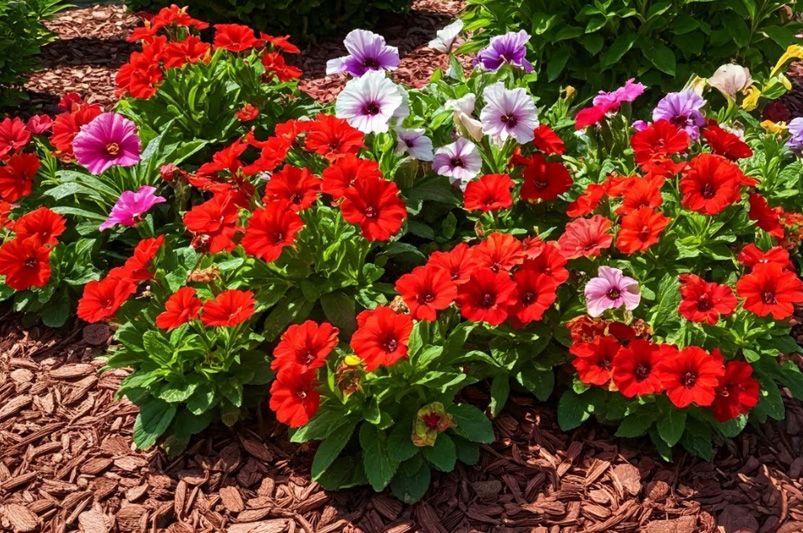
Key Highlights
- Choosing between mulch and rock depends on your budget, desired look, and maintenance preferences.
- Mulch benefits soil health as it decomposes but needs regular replacement.
- Rock offers a durable, low-maintenance solution, but doesn't enrich the soil.
- Consider a mix of mulch and rock for a balance of visual appeal and practicality.
- This detailed comparison can help determine the perfect ground cover for your garden.
Introduction
Starting a landscaping project for your flower bed brings an important choice—should you use mulch or rock? To find the right choice, you need to look at their key features, benefits, and possible downsides. This helpful comparison will help you make a smart decision. It will help your flower bed grow beautifully and serve its purpose well.


Understanding the Basics of Mulch and Rock in Landscaping
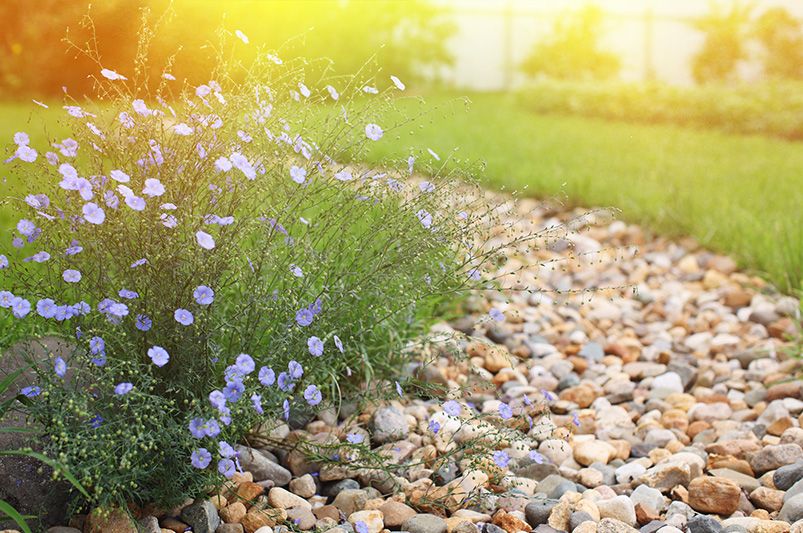
Mulch is made mostly of organic material, such as wood chips, bark, or compost. It serves as a protective blanket for your garden beds. As this natural ground cover breaks down over time, it helps improve the soil and increases soil health.
On the other hand, landscaping rocks like gravel and pebbles provide a strong and easy-to-care-for ground cover. Because they are not organic, they do not need to be replaced often and help keep weeds away. This makes them a great choice for those who want something lasting and nice-looking.
The Role of Mulch in Enhancing Soil Health
Organic mulch, like wood chips, works as a natural fertilizer. It breaks down over time and adds important nutrients to the soil. This process helps improve the soil. It helps with drainage and air circulation. Both are necessary for good root growth and plant health.
Mulch also keeps the soil moist. It acts like a sponge, soaking up water and holding onto it. This cuts down on evaporation. It helps make sure that plant roots get steady moisture, especially during hot and dry periods.
The ability of organic mulch to keep moisture means you do not have to water as often. This saves water and helps create a healthy garden ecosystem.
How Rocks Contribute to Landscape Aesthetics and Function
Integrating rocks, like river rock, into your flower beds makes your outdoor space look much better. Whether you like a modern style or a more rustic feel, landscaping rocks can fit any type of garden.
Rocks also have many practical benefits. They help retain heat, which can help certain plants that like warmer soil. Plus, rocks are heavy and stable, making them a good option for places that might erode or get a lot of foot traffic.
Because of these reasons, adding rocks to your flower beds can be a great finishing touch. They can improve the look and function of your outdoor area.
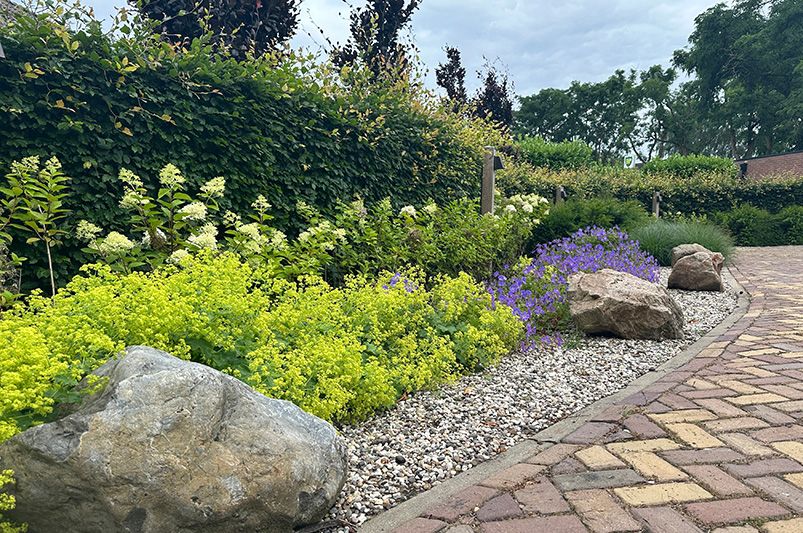
Analyzing the Benefits and Drawbacks
Both mulch and rock have their own benefits for flower beds. However, it's important to know the downsides of each. This knowledge can help you choose what works best for your garden.
Think about the good and bad points based on what you need and like. Your budget, how much work you want to do, and the look you want are important when picking between these two types of ground cover. Considering these factors will help you enjoy your landscaping choice for a long time.
Advantages of Using Mulch in Flower Beds
One of the best benefits of using mulch in your flower beds is its great ability to keep moisture in the soil. Mulch works as a barrier and helps reduce the loss of water from the soil. This keeps the roots damp, which is very important during hot summer days.
As organic mulch breaks down, it gives important nutrients to the soil. This makes the soil better for plants and helps them grow well. This natural process also means you won’t need to use chemical fertilizers often, which fits well with organic gardening.
Here are some key benefits of mulch:
- Good weed control: Mulch helps stop weeds by blocking sunlight from getting to weed seeds, so they can’t grow.
- Better plant health: With good soil, steady moisture, and won’t change temperatures, your plants can grow strong and healthy.
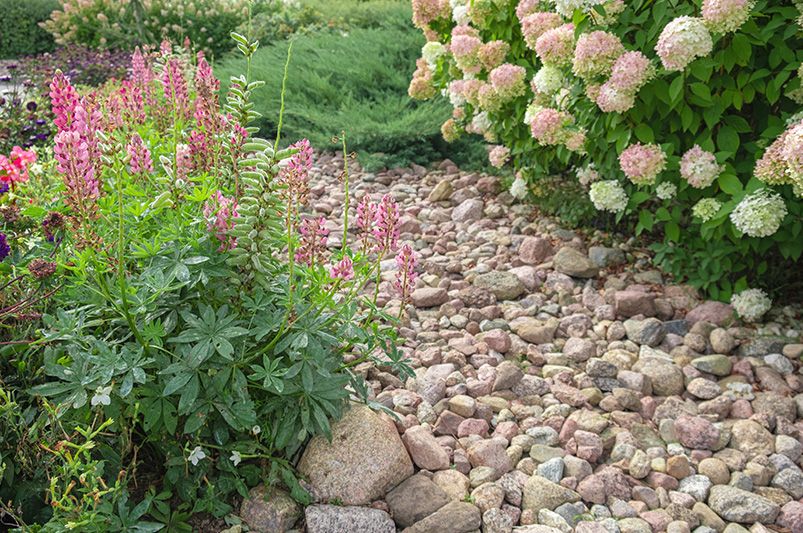
Challenges of Mulch and How to Overcome Them
Using mulch is helpful, but it can also bring some problems. One big issue is using too much mulch. This can suffocate plant roots and stop them from growing well. It's best to keep the depth at 2-3 inches for good results.
Another worry is that pests, especially insects, might hide in the mulch. To deal with this, check the mulch often. You can also use organic pest control solutions if needed.
Here are some tips to avoid common problems with mulch:
- Stop mulch washout: In places with heavy rain, use mulch mats or barriers. This can stop mulch from washing away.
- Refresh mulch regularly: Add more mulch every 1-2 years. This keeps it looking good and working well.
Pros of Incorporating Rocks into Your Garden
Incorporating rocks into your garden beds gives them a lasting look and requires little care. Rocks are very durable. They keep their shape and color for a long time, which means you do not have to replace them often.
Rocks like gravel and pebbles are great for stopping weeds. When you spread them out, they help prevent weeds from growing. This saves you time and effort, so you can enjoy more fun gardening activities.
Here are some benefits of using rocks in your garden:
- Low-maintenance solution: Rocks do not need watering, fertilizing, or replacing, making them ideal for busy people.
- Enhanced visual appeal: The different colors, sizes, and textures of rocks add beauty to any garden.
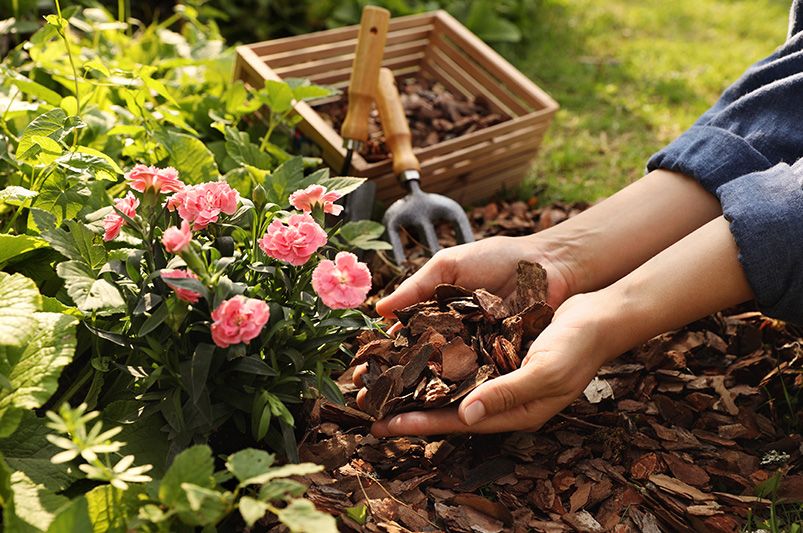
Cons of Rock Landscaping and Mitigation Tips
One possible problem with rock landscaping is the high cost at first. This is especially true if you choose large boulders or special stones. Yet, this upfront cost can often be worth it because you may save money on replacement and care over time.
In areas with harsh weather conditions, rocks can hold too much heat or reflect too much sunlight onto plants. This might hurt the plants. To fix this, you can choose heat-resistant plants or create shade during the hottest times of the day.
You can deal with the challenges of rock landscaping by using these tips:
- Fight soil compaction: Loosen the soil under the rocks every few years. Adding organic matter helps keep water moving through the soil.
- Control weeds: Rocks can block some weeds, but some may still grow between them. You should weed now and then or use spot treatments with herbicides to keep weeds away.
Cost Comparison and Maintenance Insights
Cost analysis is important when you make landscaping choices. Rocks usually cost more than mulch at first. But, if you look at long-term costs, the situation changes. Mulch breaks down over time, so you need to buy more regularly, which can lead to ongoing expenses.
On the other hand, rocks last a long time and need less care, which can save you a lot of money in the long run. The final choice depends on your budget and if you would rather pay more upfront or deal with regular maintenance costs for mulch.
Initial Costs and Longevity of Mulch vs. Rock
While the type of mulch or rock chosen can influence the price, a general comparison reveals the initial cost difference. Mulch is usually the more budget-friendly option in the beginning, especially for larger areas where a considerable volume is needed. Conversely, rocks, especially those with decorative appeal, might demand a larger upfront investment.
However, it's the long-term cost comparison that often reveals the economic benefits of rocks. Their durability ensures they won't need replacing every few years, unlike mulch. So while initially you might spend more on rock landscaping, it's likely to save you money in the long run.
Here’s a table summarizing the initial cost variations:
|
Material |
Price Range (per cubic yard) |
Notes |
|
Bark Mulch |
\$30 - \$70 |
Wide availability, cost-effective for large areas |
|
Wood Chips |
\$20 - \$50 |
Can be obtained for free in some areas |
|
Pea Gravel |
\$40 - \$80 |
Affordable rock option |
|
River Rock |
\$60 - \$150 |
Decorative appeal, higher cost |
|
Landscape Boulders |
\$150 - \$500 |
Significant variation in price depending on size and type |
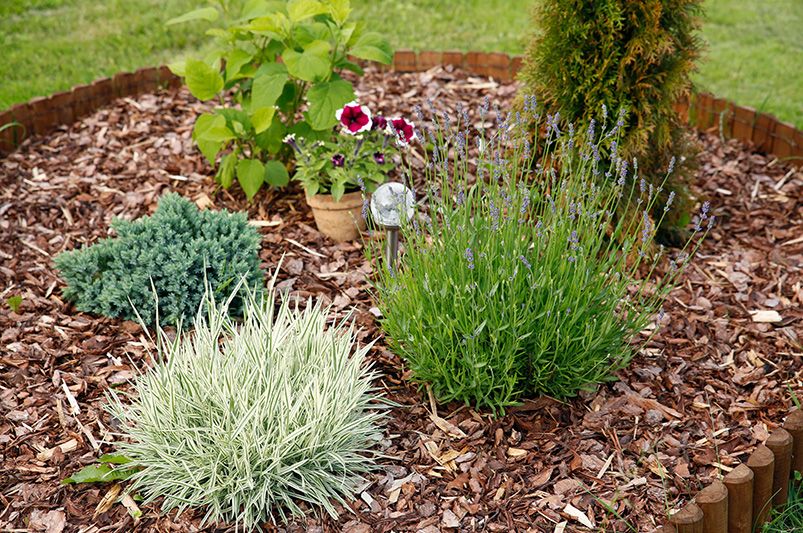
Maintenance Requirements for a Pristine Garden
Maintaining a beautiful garden goes beyond just keeping plants healthy. You need a complete approach to lawn care, including taking care of ground cover. This helps keep everything looking nice. Mulch is great because it breaks down, but it needs to be replaced regularly and may need weeding from time to time.
In contrast, rocks are easier to care for. You only need to occasionally clear away debris and control weeds. This makes rock landscaping a good choice for busy homeowners who want low-maintenance gardens. However, rocks are heavy and can sink into the soil, so you might need to add more from time to time.
Choosing the right ground cover means finding a balance between how it looks and how much work it needs. Look at your garden soil, climate, and how much time you have for upkeep before you decide if you want to use mulch or rocks as your main ground cover.
Conclusion
In conclusion, choosing between mulch or rocks for your flower beds is about your needs and likes. Mulch helps soil health by keeping moisture in and reducing weeds. Rocks last a long time and look nice. It’s important to know the benefits and downsides of both options to make the right choice for your garden. Think about cost, how much maintenance you want, and the look you prefer before making a decision. You can also mix mulch and rocks for a unique landscaping design. For more tips, check out our FAQs. Don’t forget to share photos of your beautiful flower bed creations on social media to inspire others!
Frequently Asked Questions
Can I mix mulch and rock in the same flower bed?
Combining organic mulch with river rock in your garden beds is a great idea. It looks good and works well. Mulch helps your plants grow, while the rocks add strength and beauty.
How often should I replace mulch or rocks in my garden?
The frequency of replacing mulch depends on how long the material lasts. Organic mulch usually needs to be replaced every 1 to 2 years. In contrast, rock mulch is very durable and requires little to no replacement.
Which is more environmentally friendly: mulch or rock?
Both choices affect the environment. Mulch from organic sources helps create a sustainable garden but needs to be replaced often. On the other hand, rocks last longer, but getting them from the ground and moving them can create a large carbon footprint.
How do mulch and rock affect soil health differently?
Mulch breaks down over time. This process makes the soil better by adding nutrients. It also helps keep moisture in the soil and regulates temperature for plant roots. On the other hand, rocks don’t really add health to the soil. However, they can help keep the temperature steady.
What's the best choice for controlling weeds in flower beds?
Both bark mulch and rock mulch are good for controlling weeds. Bark mulch blocks sunlight to stop weed seeds from growing. On the other hand, rock mulch works as a physical barrier, which keeps weeds from growing.
Need Assistance for a Complete Landscape Makeover?
Shrubhub’s landscape design packages can significantly transform the lives of homeowners by delivering customized, professional landscaping plans tailored to their unique space and personal style. With the ease of online collaboration, you are guided step-by-step through a design process that fundamentally reshapes your outdoor environment. The result is an aesthetically pleasing and functional outdoor living area that maximizes the potential of your property.


